Basic arithmetic practice Numbers Worksheets for Ages 3-8
5 filtered results
-
From - To
Welcome to our Basic Arithmetic Practice Numbers Worksheets designed for children ages 3-8! These engaging worksheets offer a fun and interactive way for young learners to develop essential math skills. With a variety of exercises covering addition, subtraction, and number recognition, kids can practice at their own pace and build confidence in their abilities. Our user-friendly format encourages a love for learning while reinforcing fundamental concepts. Perfect for homeschooling, classroom activities, or extra practice at home, these worksheets will spark curiosity and pave the way for a strong mathematical foundation. Explore our collection today and watch your child's skills grow!
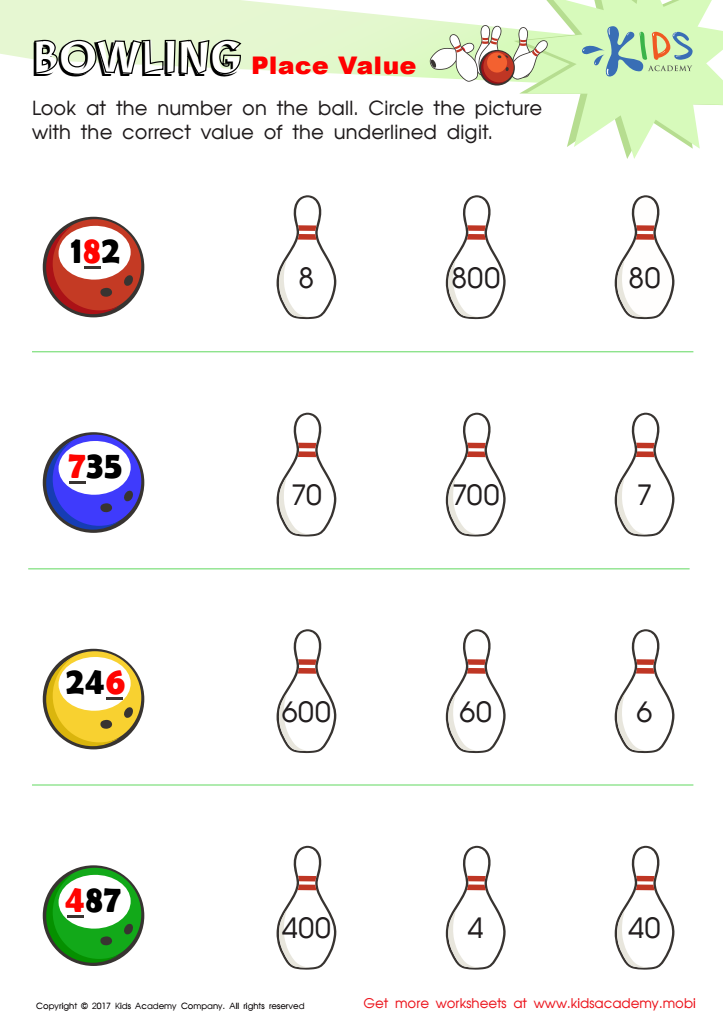

Place Value Worksheet
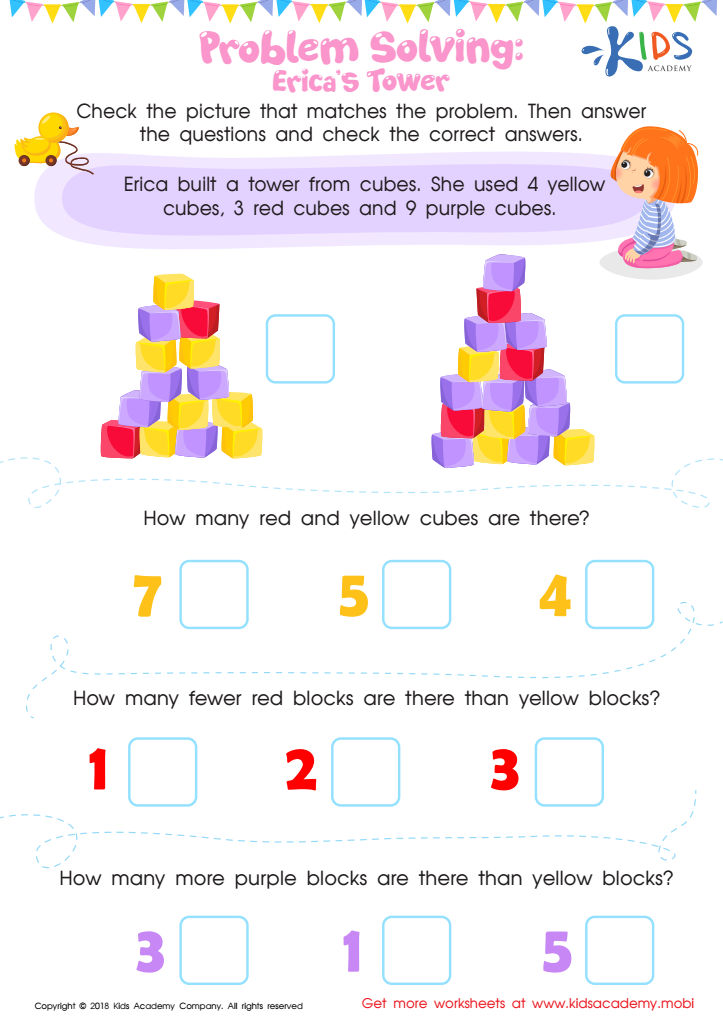

Problem Solving: Erica's Tower Worksheet
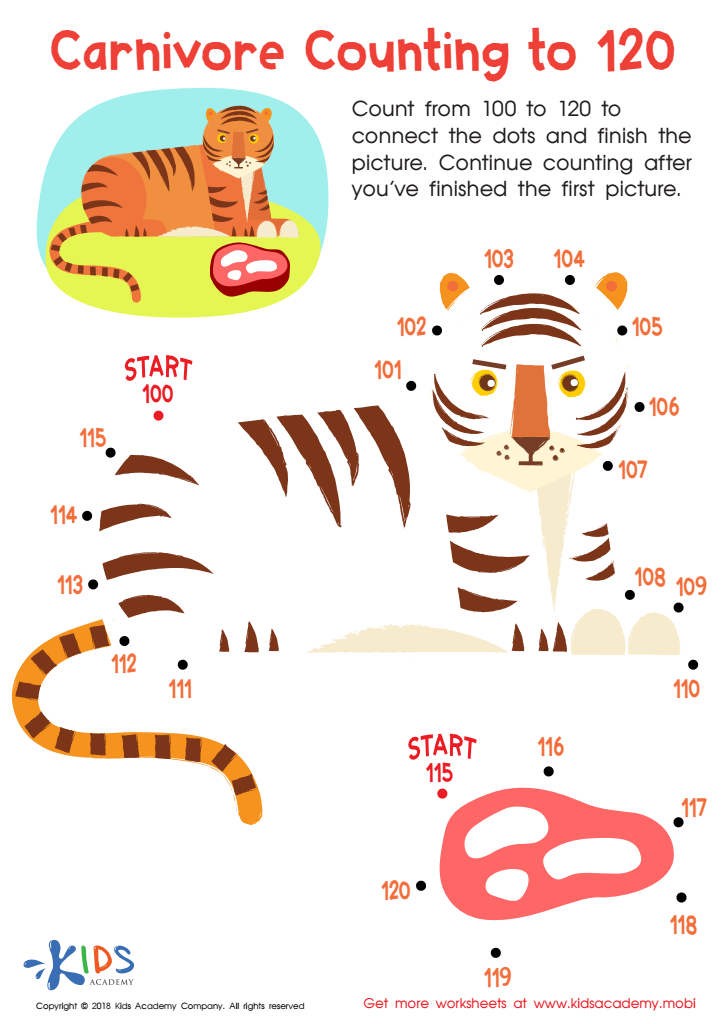

Carnivore Counting to 120 Worksheet
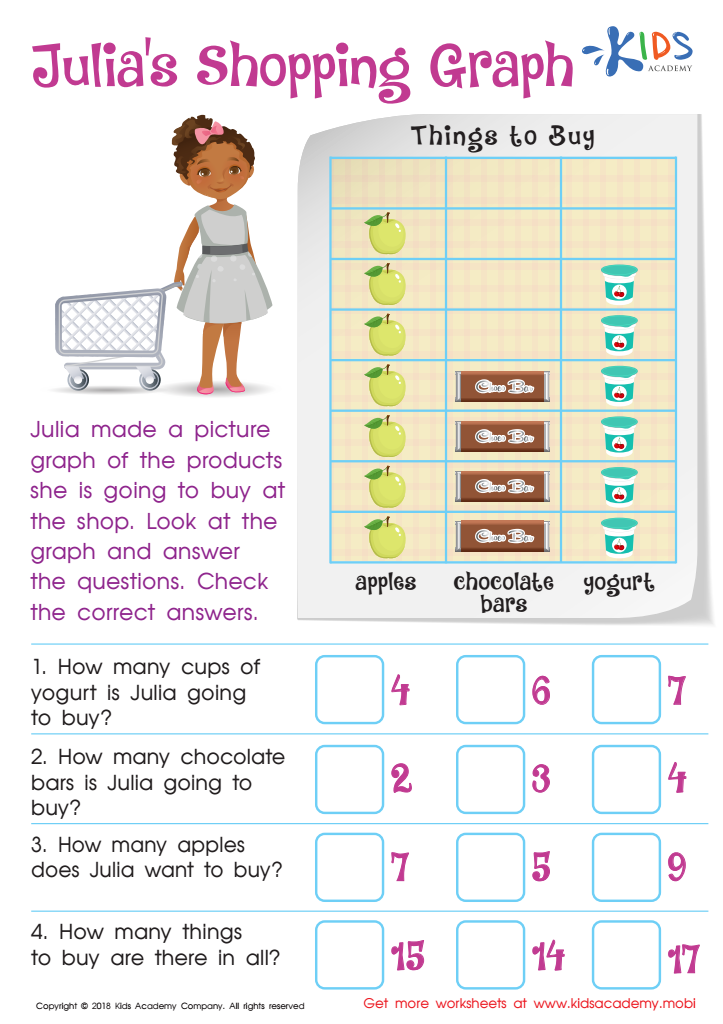

Julia's Shopping Graph Worksheet
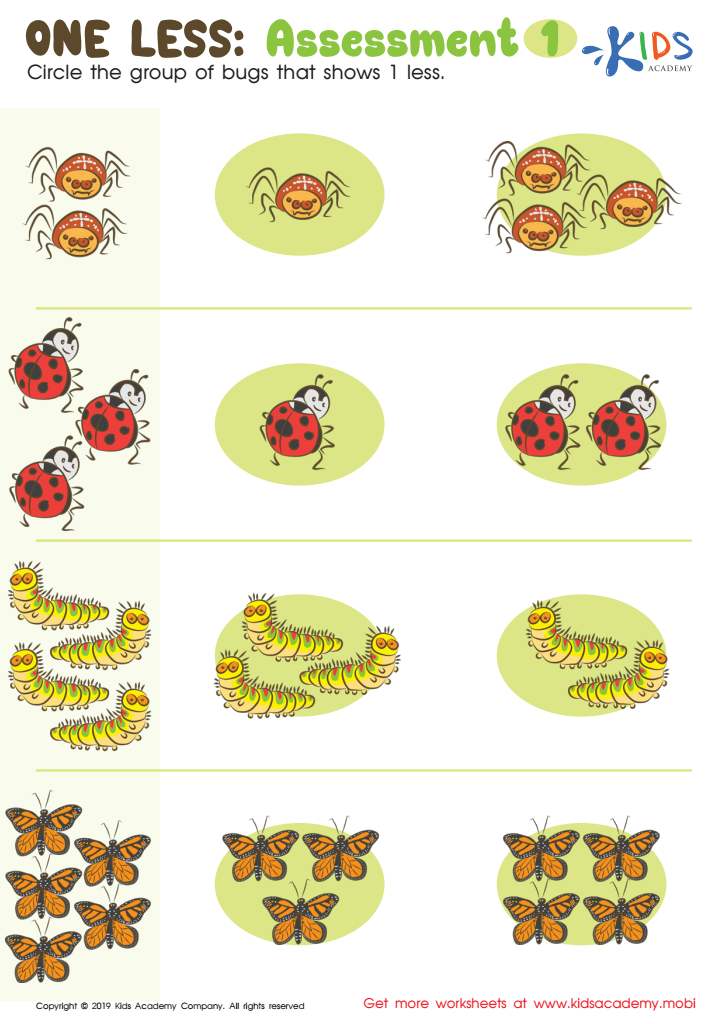

One Less: Assessment 1 Worksheet
Basic arithmetic practice is crucial for children ages 3-8, as it lays the foundation for their future mathematical understanding and problem-solving skills. At this developmental stage, children are naturally curious and eager to learn, making it the perfect time to introduce concepts like counting, addition, and subtraction. Engaging in arithmetic activities not only enhances cognitive development but also fosters critical thinking and reasoning.
Additionally, practicing arithmetic helps children improve fine motor skills through hands-on activities, like stacking blocks or using counting beads. This kinesthetic learning complements their mathematical understanding. Furthermore, consistent practice builds confidence, enabling children to tackle increasingly complex math problems as they progress in school.
For parents and teachers, recognizing the importance of early arithmetic practice supports a structured approach to learning. Incorporating games, everyday math problems, and interactive activities can make learning enjoyable and less intimidating for young children. This approach encourages a positive attitude toward math, preempting any future math anxiety. Ultimately, by prioritizing basic arithmetic practice, parents and teachers help children develop essential skills that will benefit them academically and personally throughout their lives, ensuring they're well-equipped for more advanced subjects in the future.
 Assign to My Students
Assign to My Students





%20(1).jpg)














